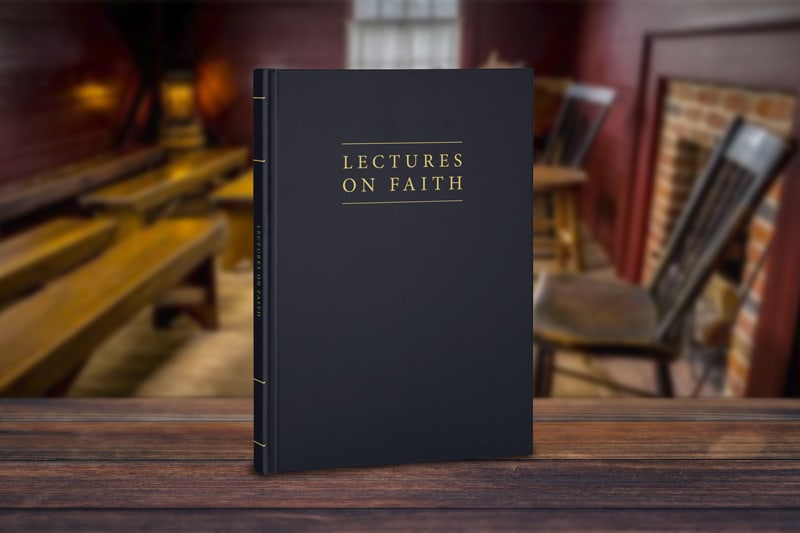An Introduction to the Lectures on Faith
"When Joseph Smith returned from Missouri to Ohio in August 1834, focus again turned to publishing the revelations. In September the Kirtland high council appointed a committee consisting of Joseph Smith, Oliver Cowdery, Sidney Rigdon, and Frederick G. Williams to publish a work "arrange[d from] the items of the doctrine of Jesus Christ." This committee was assigned to draw "from the bible, book of mormon, and the revelations which have been given to the church up to this date." While a single volume containing excerpts from the Bible, Book of Mormon, and revelation texts was the original intention, the concept was later modified. As the bipartite title "Doctrine and Covenants" suggests, the new book was made up of two parts.
The first part, on "the doctrine of the church," comprised a series of seven doctrinal lectures on the subject of faith, first prepared as a course of instruction for the School of the Elders held in the second Kirtland printing office in the winter of 1834-1835. Lecture one was contemporaneously published as a broadside and lectures five and six were published in the May 1835 issue of the Latter Day Saints' Messenger and Advocate, but there is no known manuscript copy of any of the lectures. Although no Joseph Smith-era published version states who authored the lectures, they were traditionally attributed to Joseph Smith. Modern scholars, however, largely agree that Rigdon authored most or all of the lectures.
The second part of the Doctrine and Covenants contained the "covenants and commandments of the Lord," or revelations. Inasmuch as the revelations made up the majority of the volume and the volume's title indicated that the texts therein were "carefully selected from the revelations of God," it is curious that the revelations were placed in the second part of the book. The sequence of the book's two parts may have resulted from the order in which materials were ready to be typeset. Regardless, the revelations were considered to be of paramount importance, and the 1835 Doctrine and Covenants was the most important collection of revelations published to that point."
- Historical Introduction to the 1835 Edition of the Doctrine & Covenants via the Joseph Smith Papers Project
About This Online Edition
The 1835 edition of the Doctrine and Covenants is the source text for this online edition of the Lectures on Faith. Though integrity to the original text is an overall priority, a small number of minor edits/updates have been made to this edition:
- Titles have been given to each lecture to highlight the general subject matter.
- Questions at the end of each lecture have been numbered to make them easier to reference.
- A very small handful of spelling corrections.
- Modernized Book of Mormon references to the current chapter and verse. Originally, there were page numbers that referenced the 1830 edition of the Book of Mormon.
- Scripture references show the full book name and are no longer abbreviated.
- For convenience, you can link to specific lectures, verses, or questions directly. You can simply right-click on a verse or question to copy the link or you can structure your links like these examples:
Link to Lecture: http://lecturesonfaith.com/5
Link to Verse: http://lecturesonfaith.com/5/#3
Link to Question: http://lecturesonfaith.com/5/#q14
Any additional updates to this project may be reviewed in the changelog.
Order a Printed Version
If you would like a physical copy of this edition of Lectures on Faith for your personal study or a gift, you can order an affordable copy sold at cost with no markup on Amazon.com.
Hardcover: $11.33 (US)
Softcover: $3.83 (US)
